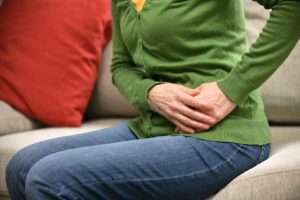
What is PCOS?
PCOS is a hormonal disorder that affects about one in every ten women of reproductive age. The syndrome begins when the body’s ovaries produce excess testosterone, which causes an imbalance in other hormones such as estrogen and progesterone. This change can result in weight gain or difficulty losing weight, acne, and excessive hair growth on the face or chest. Women who have PCOS may also experience periods where they don’t menstruate regularly (called oligomenorrhea) or have pain during menstrual cycles (dysmenorrhea).
Understanding PCOS symptoms
What are the common symptoms of PCOS?
- Irregular Menstrual Cycles
- Excessive Hair Growth
- Acne
- Weight Gain or Difficulty Losing Weight
- Painful Periods (Dysmenorrhea)
- Irregular periods or lack thereof
- Infertility
12 Natural ways to reverse symptoms of PCOS
But the good news is that there are ways to naturally reduce symptoms of polycystic ovarian syndrome, without the need for medication!
Tip #1: Drink plenty of water
A study at Loma Linda University showed that women who drank more than 64 ounces per day had a 72% lower risk of developing dysmenorrhea and a 27% lower risk of having abnormally long menstrual cycles.
Tip #2: Exercise regularly
Regular exercise reduces insulin resistance, which is often associated with weight gain in those diagnosed with PCOS. This can help you lose some weight and improve other symptoms such as acne by regulating your hormone levels as well.
Tip #3: Get enough sleep
Sleep deprivation can lead to weight gain and other symptoms such as acne, while getting the appropriate amount of rest helps regulate hormone levels that may be contributing.
Tip #4: Eat more protein
Eating a diet high in animal proteins is associated with lower insulin resistance rates, which means a reduced risk for developing PCOS and its related symptoms.
Tip #5: Use essential oils
Some women have found success using aromatherapy to manage their menstrual cycles or reduce pain during menstruation by diffusing certain oils; this is not an effective way for everyone but worth trying if you’re interested! Studies also show that using lavender oil as an aromatherapy massage oil may greatly reduce pain and discomfort associated with menstrual cramps.
Tip #6: Improve your gut health
Studies show that those who suffer from gastrointestinal problems are at higher risk for Type II diabetes (which affects some women with PCOS) and have a higher rate of developing this disorder. Taking steps to improve your gut help now, can make a difference later.
Tip #7: Take probiotics
Probiotic supplements can help regulate gut health, which can reduce the risk of developing Type II diabetes or other associated conditions like polycystic ovarian syndrome.
Tip #8: Get more sun exposure
Vitamin D deficiency is associated with insulin resistance; studies show that those who take vitamin D supplements are less likely to develop problems related to type II diabetes in general as well as specifically PCOS. To get enough sunlight during the winter months, try getting outside for 20-30 minutes per day without sunscreen on bare skin (not just your face!).
Tip #9: Avoid taking birth control pills as they increase the risk of developing PCOS due to elevated estrogen levels.
If you are not able to avoid them for medical reasons consult your doctor about alternative forms such as an IUD or vaginal ring with progesterone instead of estrogen because these hormones have less impact on hormone balance than oral contraceptives and can reduce the risk.
Tip #10: Take zinc supplements
Zinc not only helps reverse it but is known for aiding fertility and decreasing symptoms associated with acne when taken daily at doses between 15mg – 65mg depending on age group.
Both of these practices will help you feel better about yourself and reduce your symptoms associated with depression at the same time! The physical postures can improve blood flow to the pelvic region, potentially aiding in hormonal balance and ovary function. Additionally, yoga can assist in weight management, a key component in managing PCOS, by enhancing metabolic function and promoting lean muscle mass. Overall, yoga provides a holistic approach to well-being, which can complement traditional treatments for PCOS.
Tip #12: Incorporate herbs
Reverse PCOS naturally by taking herbs such as red clover extract (also known as isoflavones), black cohosh root extracts (known for reducing hot flashes), or evening primrose oil capsules containing ursolic acid in addition to following an anti-inflammatory diet rich in vegetables and protein with minimal carbs.
There is hope for those suffering from PCOS
Women with PCOS are often left feeling frustrated and helpless. They feel as though there is nothing they can do to improve the symptoms caused by this condition.
The truth is that there ARE things women can do to get their hormones back in balance, reduce inflammation, and restore reproductive health. But it’s hard to figure out what those things are on your own…and most doctors don’t know how to treat PCOS either!
BeBalanced offers natural treatment options for improving the symptoms caused by polycystic ovarian syndrome without the negative side effects! Our products help balance hormones naturally, helping promote regular menstrual cycles, as well as reducing excess facial hair growth. We also offer tailored diet plans to help block testosterone from converting into estrogen, which helps reduce unwanted hair growth on your face or body!
To learn more, schedule a FREE consultation today! We offer both in-person and virtual appointments at any of our centers nationwide.
